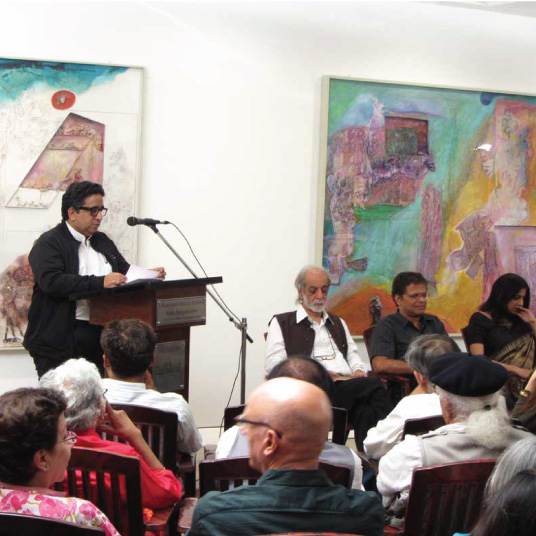
An evening of poetry invited us to consider the relationships that have evolved among the various arts, and how each art has enriched the other. Specifically, the readings focused on the history of dialogue between the spoken word and the painted image.
‘Mohan Samant: Paintings’, the show that was on display at the Jehangir Nicholson Gallery, had a protagonist, the artist who was as passionate about playing the sarangi as he was about his extraordinary work as a visual artist. He believed that practising the sarangi improved his discipline, cleared his mind, and sharpened his focus on painting.
Many artists relate to more than one discipline and work in the borderlands between various arts. This event showcased six such voices.
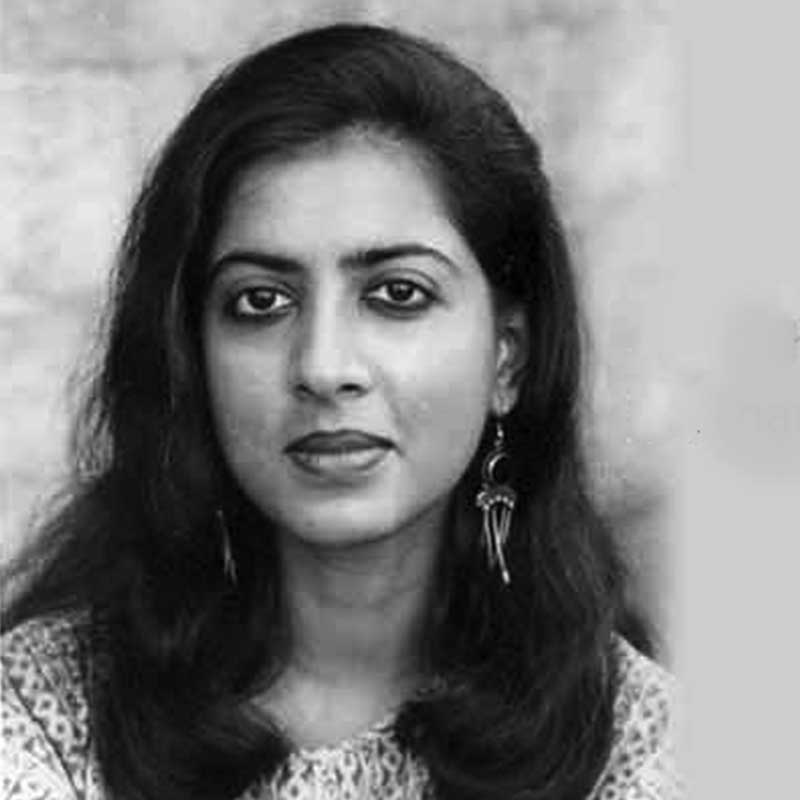
Arundhathi Subramaniam is an award-winning poet, editor, curator and journalist writing on theatre, literature, culture and classical dance. She is the author of four books of poetry, most recently ‘When God is a Traveller’ in 2014. Her prose works include the bestselling biography of a contemporary mystic ‘Sadhguru: More Than a Life’ and ‘The Book of Buddha.’
Her poetry has been published in various international journals and anthologies, including ‘Reasons for Belonging: Fourteen Contemporary Poets’, ‘We Speak in Changing Languages’ and ‘Sixty Indian Poets’. Her work has been translated into Hindi, Tamil, Italian and Spanish.
Arundhathi was also Head of Indian Classical Dance at the National Centre for the Performing Arts, Mumbai and lead a discussion-based inter-arts forum named ‘Charaha’. She has also been columnist on culture and literature for Time Out, Mumbai, The Indian Express and New Woman. She lives between Bombay and Coimbatore. She has won many awards including the Raza Award for Poetry in 2009 and the Homi Bhabha Fellowship in 2012 and the first Khushwant Singh Memorial Prize in 2015 amongst others.
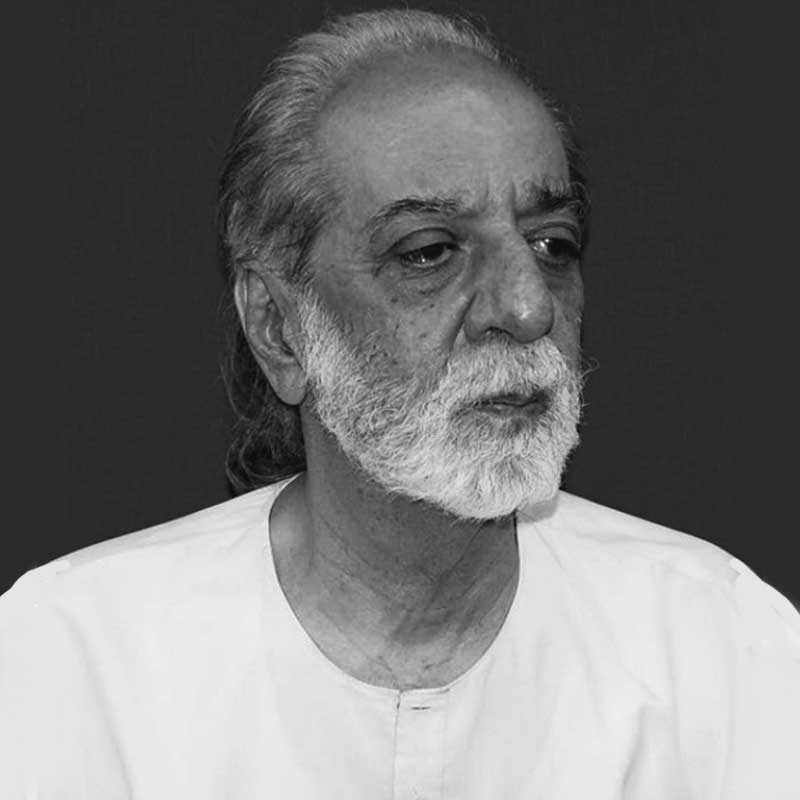
Poet and critic Adil Jussawalla is one of the most influential personalities in the English Poetry circle in India. He has written two books of Poetry, Land’s End in 1962 and Missing Person in 1976. He has edited a seminal anthology of new writing from India in 1974 and co-edited an anthology of Indian prose in English in 1977. He writes a complex poetry – ironic, fragmented, non-linear, formally strenuous – that evokes and indicts a dehumanised, spiritually sterile landscape, ravaged by contradiction, suspended in a perpetual state of catastrophe. His more recent works are The Right Kind of Dog in 2013, Maps for a Mortal Moon: Essays and Entertainment in 2014 and I Dreamt a Horse Fell From the Sky in 2015. He was presented the Sahitya Akademi Award in 2014 for his book of poetry Trying to Say Goodbye.
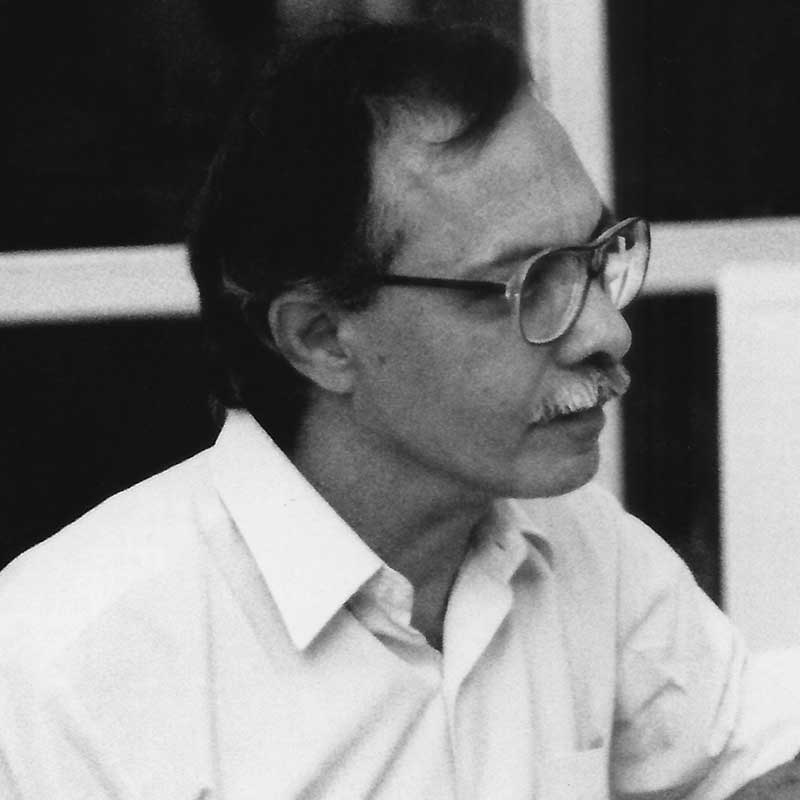
Gieve Patel was born in Mumbai in 1940. He is a man of many shades – a practicing general physician, a self-taught artist, a poet and a playwright – all at the same time.
He held his first show in Mumbai in 1966 that went on to have several major exhibitions in India and abroad including those at Bose Pacia, New York; Gallery Threshold, New Delhi; Gallery Chemould, Mumbai; Peabody Essex Museum, Salem, Massachusetts; The Guild Art Gallery, Mumbai; Jehangir Art Gallery, Mumbai.
His works are direct and unambiguous, achieving an objective precision. He addresses social realities, but avoids the reductivism of hardline political positions. Patel painted satirical portraits of politicians. Since 1991 Patel has consistently explored the central image of the water well. He often refers to it as the navel of the earth and it is his place for contemplation.
In his later works, Patel’s finely tuned painterliness is seen as the surfaces of his works are mottled with a carefully modulated series of textures. Old age is surely the main subject tackled by these works, but the series of paintings also offer us an opportunity to contemplate mastery.
His poetry works include ‘Poems’ followed by ‘How Do You Withstand’, ‘Body and Mirrored Mirroring.’ His plays include ‘Princes’, ‘Savaksa’ and ‘Mr Behram’. He has been conducting a poetry workshop in Rishi Valley School for over more than a decade. He also edited a collection of poetry, which was published in 2006.
Patel lives and works in Mumbai.
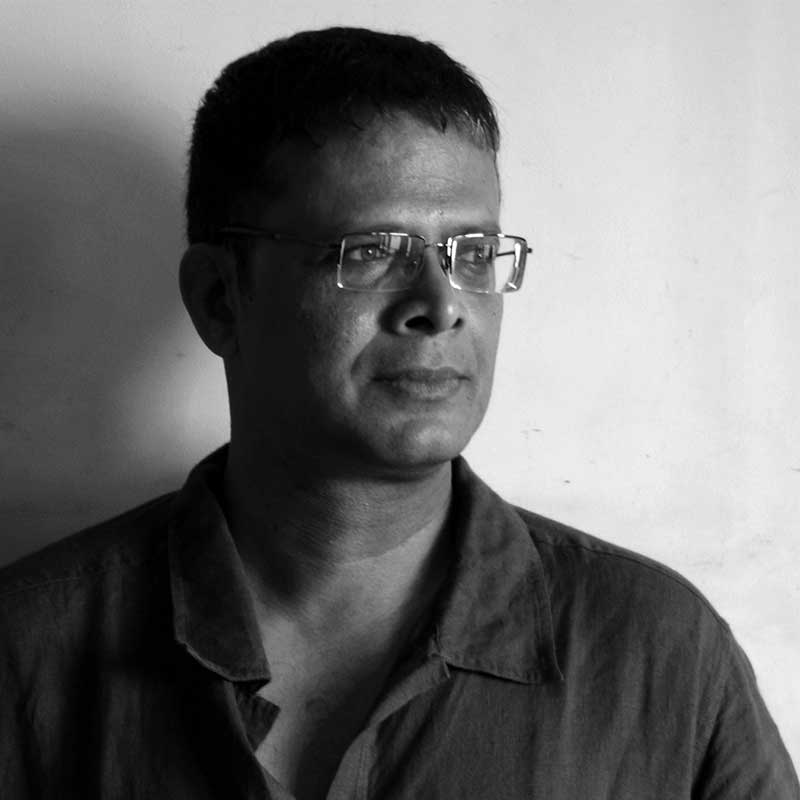
Jerry Pinto is a journalist, a writer of poetry, prose and children’s fiction. He spent ten years free-lancing, teaching mathematics writing television scripts and audio-documentaries and indulging in sundry other acts of journalism, after which he got his first real job with a media company. He then joined a travel website company where he was the chief architect and editor. He returned to magazine journalism as Executive Editor of Man’s World magazine. Later, he joined Paprika Media to edit their special projects. He’s written an award-winning book on the queen of Bollywood – Helen: The Life and Times of an H Bomb in 2006, a book of poetry– Asylum and other poems in 2004. He also wrote Surviving Women, which a manual of gender politics, written for confused Indian men. Other books include Bombay Meri Jaan: Writings on Mumbai and A Pocketful of Wry; Indian Poets Also Laugh. Jerry Pinto is also a lecturer at Sophia Polytechnic, Xavier Institute of Communication and other colleges in Mumbai. He is on the board of directors of MelJol, an NGO that works in the child rights space. He is a Committee Member of the Indian PEN and a member of the Poetry Circle, Mumbai.
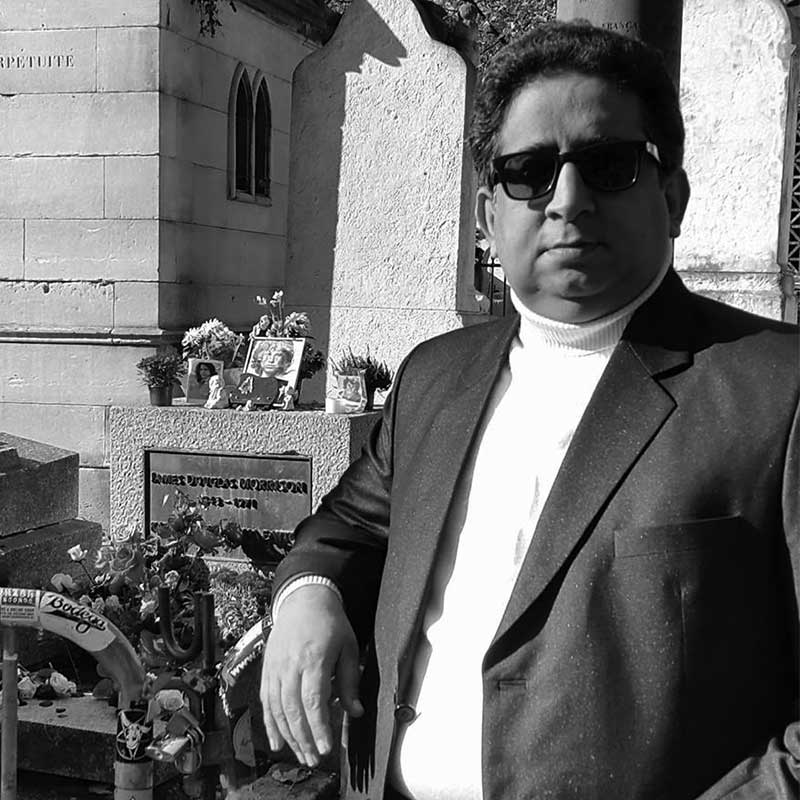
Mustansir Dalvi is Professor at the Sir JJ school of Architecture in Mumbai and Chairperson of the Board of Studies in Architecture at the University of Mumbai. He’s done extensive research on architecture and urban issues that has been published in several journals. He is also the author of ‘The Romance of Red Stone: An Appreciation of Ornament on Islamic Architecture in India”. Mustansir is also an accomplished poet and his work has appeared in several collections and anthologies. His first book of poems Brouhahas of Cocks was published in 2013. He has also done a very elegant translation of two important and controversial poems of Mohammed Iqbal – Shikwa (Taking Issue) and Jawaab-e-Shikwa (Allah’s Answer). His translation make these poems – dating back to the early 1900’s , come alive in a language that is contemporary and accessible to people.
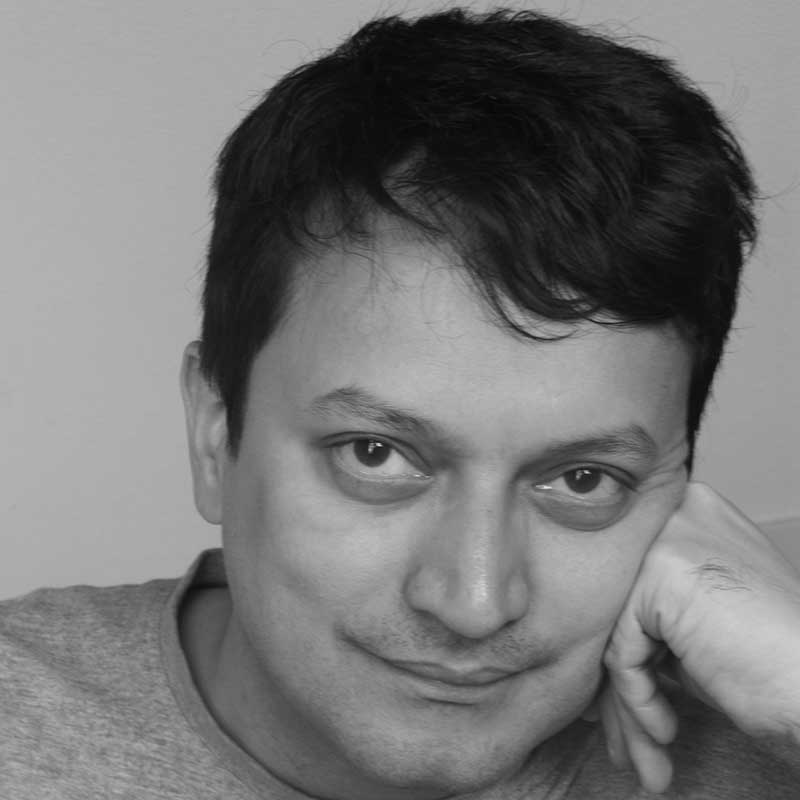
Ranjit Hoskote is a cultural theorist, curator and poet based in Mumbai. He is the author of 30 books, including a biography of Jehangir Sabavala, Pilgrim, Exile, Sorcerer (Eminence Designs, 1998), and numerous monographs, among them The Complicit Observer: The Art of Sudhir Patwardhan (Eminence Designs, 2004), Zinny & Maidagan: Compartment/ Das Abteil (Museum für Moderne Kunst, Frankfurt/ Walther König, 2010), and Atul Dodiya (Prestel, 2014). With Nancy Adajania, he is co-author of The Dialogues Series (Popular, 2011), an unfolding programme of conversations with artists. With Maria Hlavajova, he is editor of Future Publics: A Critical Reader in Contemporary Art (BAK/Valiz, 2015).
Hoskote curated India’s first-ever national pavilion at the Venice Biennale (2011), co-curated the 7th Gwangju Biennale (2008), and was co-convenor of Documents, Constellations, Prospects (Haus der Kulturen der Welt, Berlin, 2013). His exhibitions include Bombay: Labyrinth/ Laboratory (Japan Foundation, Tokyo, 2001), a mid-career retrospective of Atul Dodiya; Jehangir Sabavala, a lifetime retrospective (NGMA Mumbai & Delhi, 2005-2006); Unpacking the Studio: Celebrating the Jehangir Sabavala Bequest (CSMVS/ JNAF, 2015), and No Parsi is an Island (with Nancy Adajania; NGMA Mumbai, 2013 & NGMA Delhi, 2016).